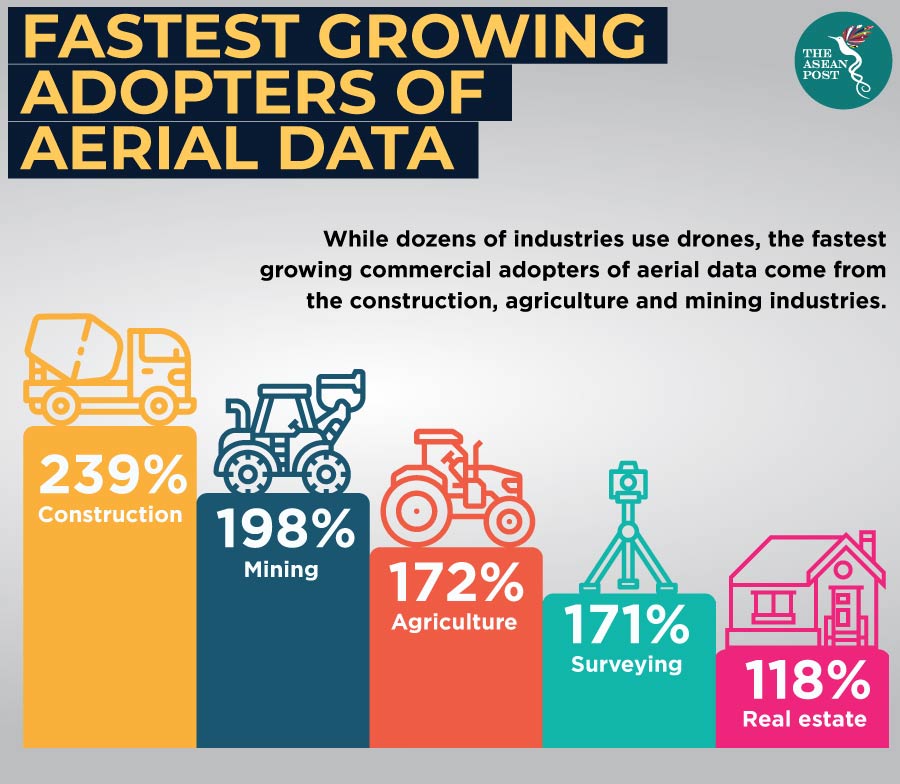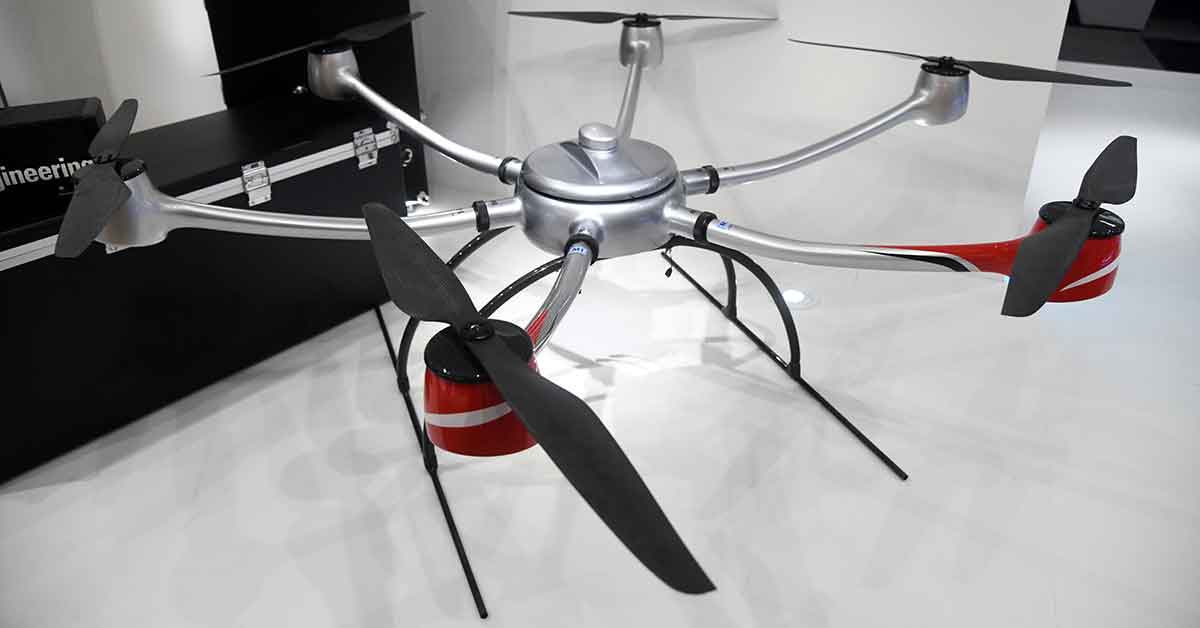In the wake of Industry 4.0, many companies have tried to utilise automation and data exchange in manufacturing technologies. This is especially prevalent in the construction industry where the need for increased efficiency and delivering a quality product both, physically and digitally has now become a necessity rather than an indulgence. Many technologies have sprung up to meet the challenge, such as artificial intelligence (AI) and drones.
Call it a drone, Unmanned Aerial Vehicle (UAV), Unmanned Aerial System (UAS) or Remote Piloted Aircraft System (RPAS), it usually involves a flying platform that is remotely controlled by a pilot assisted by flight software, onboard sensors and Global Positioning System (GPS) / Global Navigation Satellite System (GLONASS). It has a payload which is usually a camera system, but could also be technologies such as LIDAR (Light Detection and Ranging) and thermal cameras. There is shared telemetry between the drone and the ground control station which enables the pilot to fly in a stable manner.
The numbers
DroneDeploy, a cloud software platform for commercial drones has compiled statistics on drone usage based on 100 million aerial images from 400,000 job sites in 180 countries in 2018. Below are some of the findings:
• The construction industry has seen an increase of 239 percent in the adoption of drone technology. The other two industries directly related to construction, namely surveying and real estate, have an increase of more than 100 percent for each industry.
• There are many benefits that are associated with the use of drones in construction, namely increased safety, cost saving and better data collection and usage.
• Drones are primarily used for progress tracking and communication, preconstruction and site planning, quality control and assurance, bid process preparation and job site risk mitigation.
55 percent of DroneDeploy customers report increased safety as a result of implementing drones.
The why
Accenture indicated in their article titled, “A business approach for the use of drones in the Engineering & Construction industries” that drones “optimise project and maintenance costs”. In the current business climate, being able to optimise project costs and maintenance costs is crucial for the viability of a business.

A drone allows for tasks to be automated and conducted in parallel with operations. Inspection can now be done while the construction is being undertaken. Various drone platforms now allow for automated drone operations that provide vital information for construction, such as cut and fill parameters, volumetric analysis of stock piles, comparison against design data and conducting accurate and repeatable topographical surveys.
Drones also “reduce workers exposure”. Health and safety are a crucial element on all construction sites. Drones allow access to dangerous areas (working at height, chemical exposure, heat exposure) which were previously deemed as high risk to personnel and cost intensive. For example, an inspection of a rooftop would utilise scaffolding and harnesses, which take time and effort to setup, whilst a drone could capture a wealth of data in a fraction of the time and cost.
But that’s not all as drones also “enable best decisions to improve quality”. The key element in the progression of technology is the ability to provide humans with better information to be able to make better decisions. A bird’s eye view of a live construction site allows for accurate decision making based on real-time information as opposed to relying on narratives and benchmarks. Another element that drones bring is that data collected can be reviewed for lessons learnt, comparison for benchmarking and general archiving.
The who and where
Many construction companies around the world have started using drones as a vital tool in their projects. International companies such as Kier, Balfour Beatty, Vinci Construction and Mitie have started to use drones as a tool on site. On the Malaysian front, projects like the Tun Razak Exchange (TRX) and various rail projects such as the Mass Rapid Transit (MRT) extension extensively use drones for project monitoring and various land use analysis. It is becoming more and more commonplace in Malaysia for drone operation in data collection and analyses.
Drones are perfect for all manner of construction, engineering and inspection projects as they provide the ability to work in an automated manner and collect data that allows for better decision making.
The when
Now is the time for companies to make the shift towards the many benefits that come with responsible drone operations. There are two ways to achieve this. The first is to hire a professional drone company that complies with the various regulatory requirements. Some discussion is usually required at the start to ensure the deliverables are in line with the need of the construction project.
The second option is to develop drone capabilities in-house to the company. The best way to achieve this is to hire an external consultant that could guide you through the process, thus speeding up the time to setup a competent drone team. The consultant will guide you through the process including purchasing, operation manual setup, audits, maintenance plan, training and software selection.
The next step
Drones will continue to improve and become commonplace in many industries. With AI starting to move into the drone space, the amalgamation of these two cutting edge technologies will produce a quantum leap in useable data that will help reduce cost, increase safety and maximise performance. The construction industry has to maintain a view of the future which will certainly include the use of drones, so as to ensure that it remains relevant and competitive in this ever-changing world.
This article was contributed by 27 Advisory and Aerial Ascent. The 27 Group is a 100 percent Malaysian owned local consulting firm that is fast, flexible and focused with unique expertise that blends local socio-economic policy settings, global engineering-built assets and detailed financial analyses. Read more about 27 Group’s consulting services at 27.group. Aerial Ascent is a drone specialist company.
Related articles:
